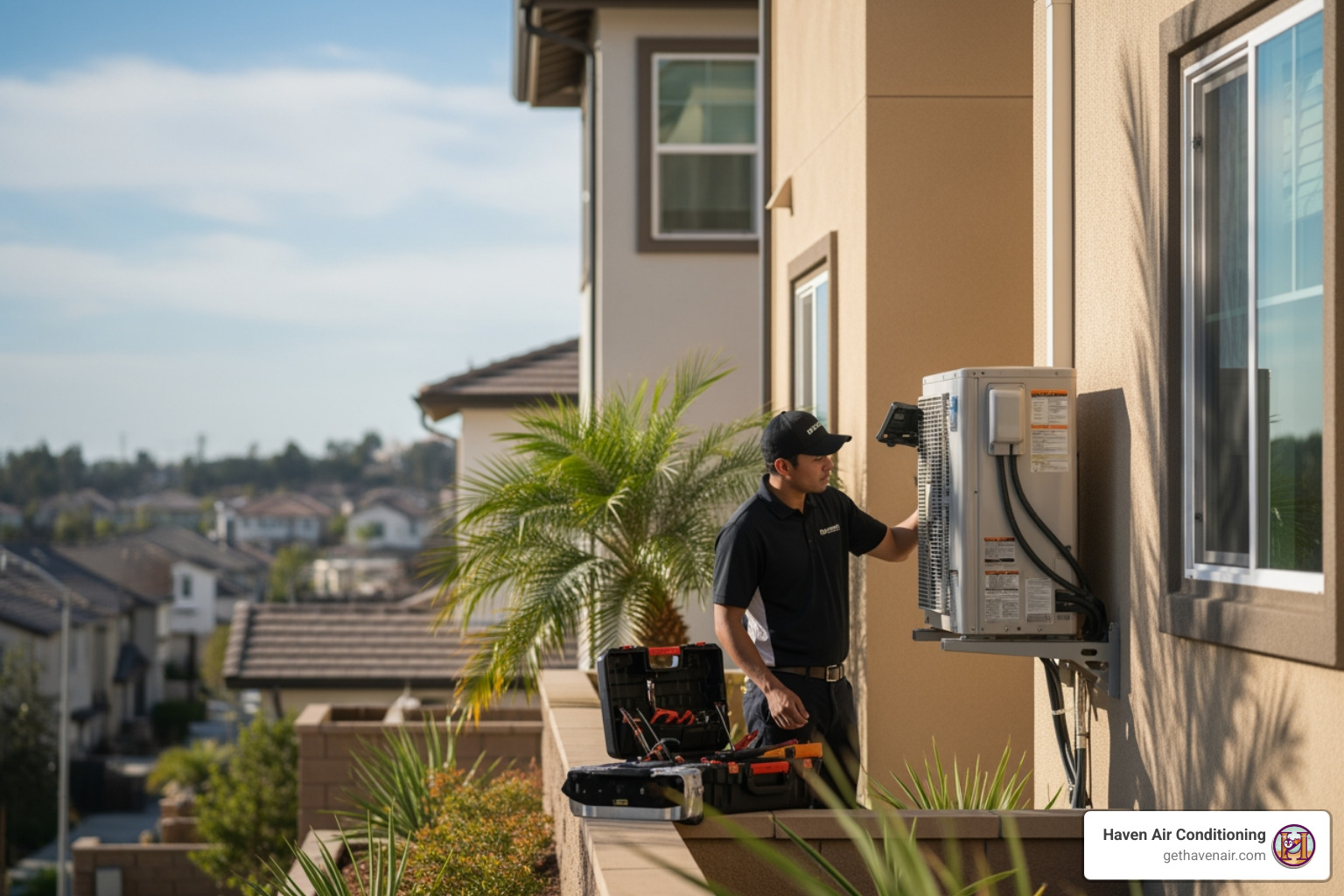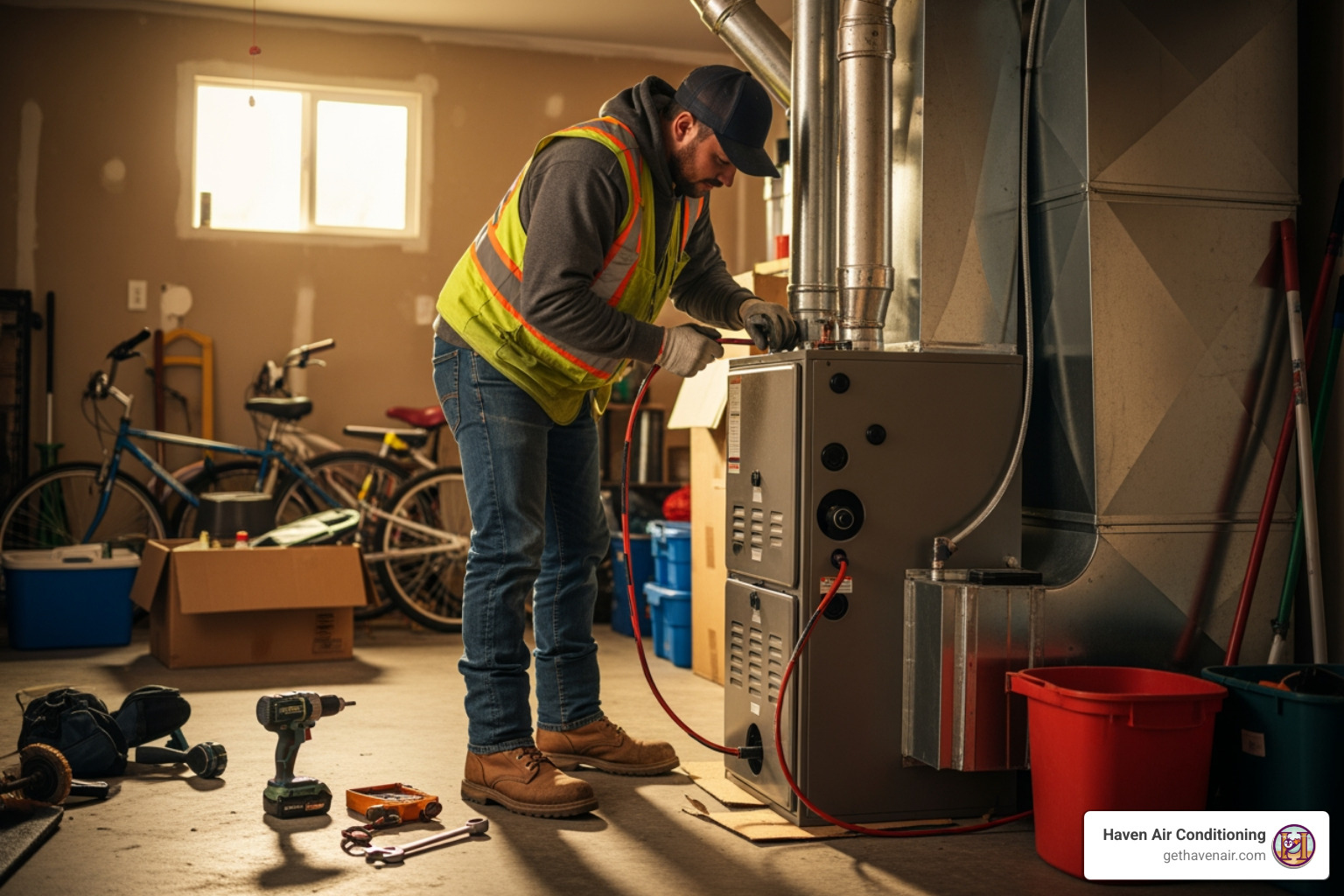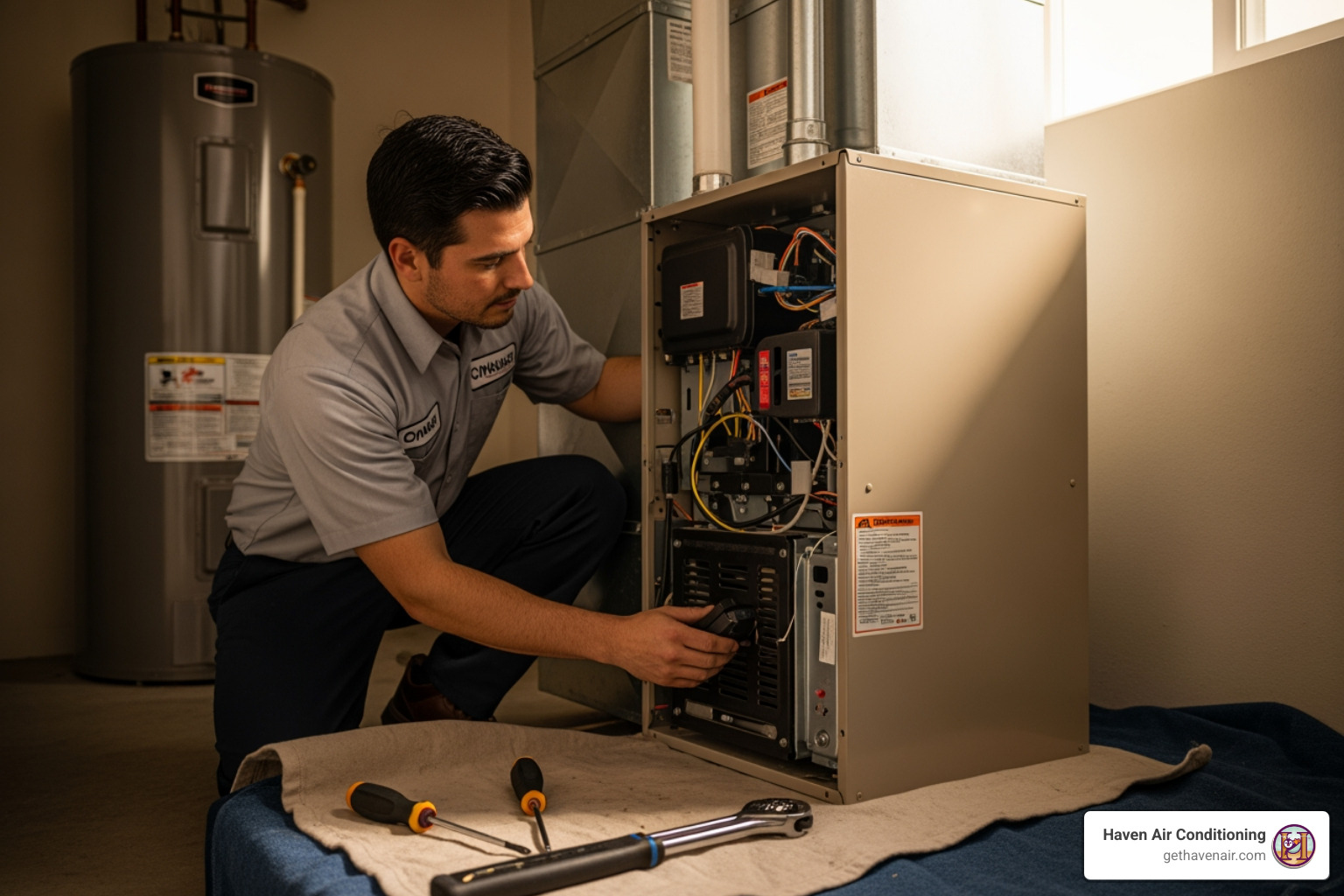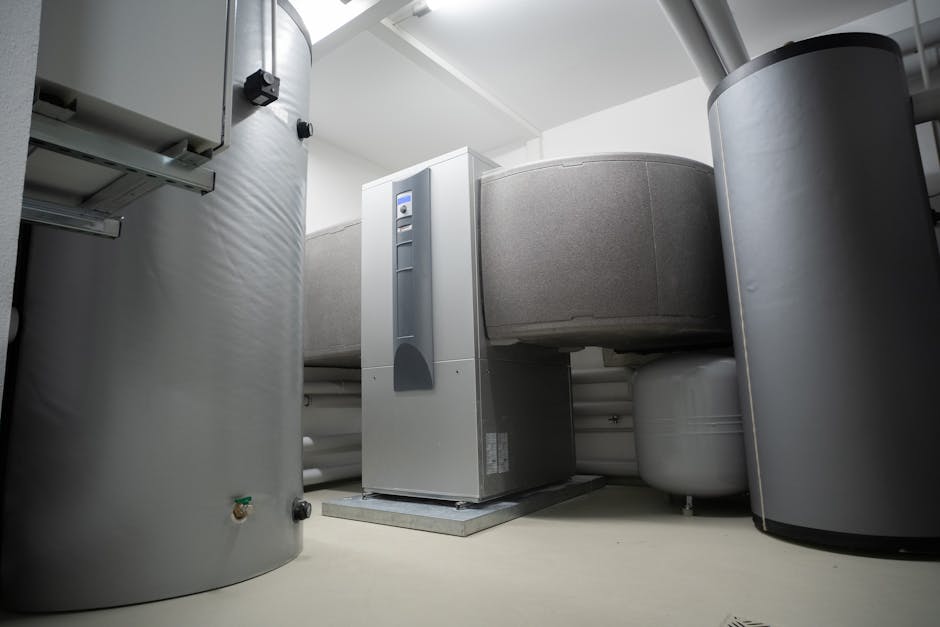Types Of HVAC Systems
HVAC systems, known as Heating, Ventilation, and Air Conditioning Systems, are integral to homes and businesses. While many people understand how HVAC systems help keep us comfortable throughout the year, only a few can accurately describe the different types of HVAC systems available and how each system functions.
Understanding all available options is important if you’re shopping for a new comfort system or want to upgrade your existing one. This article will break down the main types of HVAC systems and describe how they work.
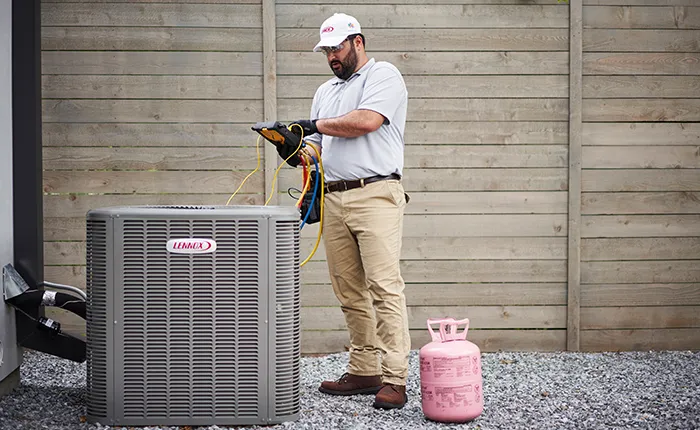
What Are the Main Types of HVAC Systems?
Different HVAC systems provide distinct options and benefits, depending on the size of your home or business and the climate in which you live. To help you decide which one is best for you, let’s take a look at some of the main types of heating and cooling systems and how they work:
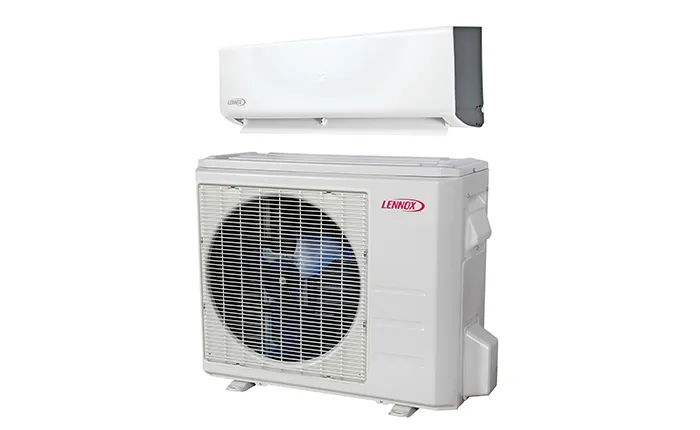
- Gas Furnace & Air Conditioning: Matching a gas furnace with an air conditioner system is a popular residential HVAC system type and a reliable way of heating and cooling in the United States. This type of system works by drawing in air from the home’s interior, which is then conditioned ( heated, cooled, humidified, or de-humidified), and then distributed through the ductwork across the home. This type of system is often referred to as called “forced air system”. Forced air systems have the added benefit of being able to rapidly heat or cool an interior space.
Depending on the model selected, furnaces can run on propane, oil, natural gas, or electricity, while air conditioners typically use electricity as their power source. This type of HVAC system is the best option for indoor spaces in climates where cooling and heating are needed year-round. - Heat Pumps: With a heat pump system, the outdoor unit will heat and cool your home. Heat pumps are an efficient and cost-effective way of controlling indoor climate. Especially when matched with solar, heat pumps can deliver significant cost savings over traditional gas furnace systems.
Heat pumps are quickly becoming popular among homeowners as they offer a range of advantages over traditional heating systems when powered by electricity. Instead of generating heat through the combustion of fuel sources like natural gas, heat pumps use electricity to transfer heat from the air outside into the interior of a home. This process is particularly powerful in moderate temperatures.
These types of HVAC systems can also work in reverse to provide central air conditioning, keeping your home cool and comfortable even during the hottest days of the year. Both budget-friendly and eco-friendly, a heat pump is an excellent choice if you have a solar system or electricity is your sole energy source available. Split Systems: The term ‘split system’ implies that the outdoor unit and indoor unit are in different locations and are not combined in one ‘package’. Instead, the outdoor component, either a heat pump or air conditioner, is connected to the indoor coil through a field-installed line-set (copper lines). Split systems are the most common type of residential HVAC systems.
Split systems come in two variations; ductless and ducted.
– Ductless Split Systems: Often called mini-split systems, ductless split systems provide targeted cooling and energy efficiency by sending cool air directly to designated blowers throughout the house.
– Ducted Split Systems: Also known as central air systems, ducted split systems work by transferring cool air to each room, from a single, centralized unit through a series of connected ducts.Zoned System: A zoned HVAC system is a great way of controlling the temperature in a home. You can control individual areas of your home with zone valves or zone dampers and select which specific parts to heat or cool instead of operating serviced areas in bulk. This saves energy, reduces costs, and allows you to maintain comfortable temperature levels in any room at any time.
This means you can choose when and where to direct the heat for maximum efficiency, resulting in an environmentally friendly experience inside your walls. This type of HVAC system is ideal for those looking to maximize the efficiency of their HVAC system without sacrificing comfort.Geothermal Heat Pump: Geothermal heat pumps are the current gold standard for home air conditioning and heating systems. These highly efficient systems use underground reservoirs of water and soil to both heat and cool the home, thus increasing energy efficiency while maintaining a consistent temperature throughout the house.
Unfortunately, these kinds of HVAC systems come at a cost; they’re more expensive on the front end than other options. But with all the money you’ll save on energy costs over time, it’s likely worth investing in a geothermal heat pump now – no matter how steep the initial cost.
How To Know What’s My HVAC System?
Thinking of “what type of HVAC system do I have?” Knowing your HVAC system is important for maintaining and repairing it. If you aren’t sure what HVAC type is installed in your home, it is probably best to schedule a maintenance visit and have the maintenance tech help you identify the components and the type of system that is installed. Here are some general pointers to help you identify your system:
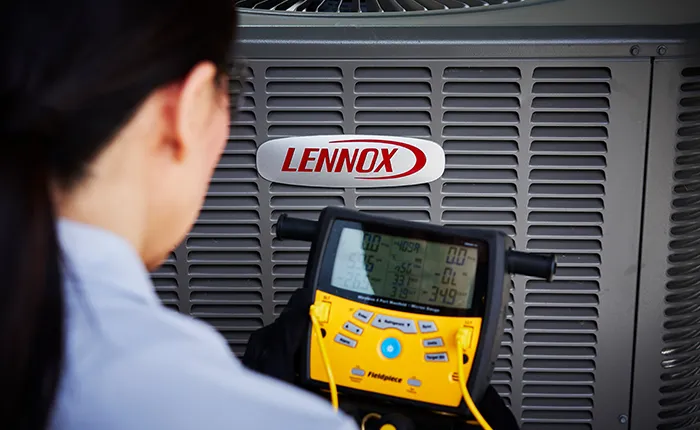
- Indoor components: All split systems have indoor components that typically are installed in attics, closets, garages, crawl spaces, or basements.
- Gas Furnace (Indoor): The gas furnace will have a vent pipe and an incoming gas line installed.
- Air Handler (Indoor): The air handler is an indoor component and is part of a heat pump system. Air handlers do not have vent pipes or gas lines installed.
- Condenser: The condenser is the outdoor component of your air conditioning system. Air conditioners reject heat during normal operation. It will be running during cooling operation.
- Heat Pump: the heat pump is the outdoor component of your air conditioning system and it can reject or absorb heat. An easy way to tell if you have a heat pump is to turn the heat on and if the outdoor unit is running, you most likely have a heat pump.
- Package Unit: Package units contain all mechanical components in one unit (heater, air conditioner, evaporator, blower motor). Package units are usually installed on rooftops, but can also be installed at ground level.
Factors to Consider When Choosing an HVAC System
When it comes to selecting the perfect HVAC system for your property, there are several crucial factors that you should take into account. These factors will ensure that you choose a system that meets your specific needs and delivers maximum comfort and energy efficiency.

- Home Comfort: The right HVAC system should provide your home with the level of comfort you desire, both in terms of temperature/humidity and air quality.
- Energy Efficiency: With ever-rising electric rates, energy-efficient comfort systems have become very popular. Make sure to do your due diligence and ask your comfort advisor about systems that can save you thousands over the service life of your new comfort system. Penny wise pound foolish comes to mind. It is recommended to spend a little more upfront and save big in the long run. Look for systems with high SEER (Seasonal Energy Efficiency Ratio), EER (Energy Efficiency Ratio), and HSPF (Heating Seasonal Performance Factor) ratings – these indicate how efficiently the unit uses energy to provide heating or cooling.
- Capacity & Property Size: It’s important to properly size your comfort system to meet your home’s cooling and heating needs. A word of caution, oversized systems typically result in poor comfort, high energy consumption, and reduced service life. The size of your property is a key factor in determining the type and capacity of the HVAC system you require. A professional HVAC contractor can conduct a load calculation to determine the ideal size based on factors such as square footage, insulation levels, number of windows, and more.
- Maintenance Requirements: Make sure to schedule regular maintenance for your HVAC system. Regular maintenance is the best way to ensure a reliable, dependable performance and optimize energy usage.
- Budgetary Constraints: Residential comfort systems in California can range from $9,000 to $60,000 depending on the level of installation that is required. A simple change out for a smaller system, which means that only the mechanical components get replaced, would be on the lower side, whereas an original high-end custom installation would be on the higher end of the spectrum.
Most system replacements that include air duct replacement and mechanical replacement will be in the $15,000 to $23,000 range. Keep in mind that all installations in California will require local building permits and CA Title 24 HERS verification. Beware of contractors that state that permits are optional. Most poor-quality installations start with no permits. - Professional Installation: Professional installation is crucial when it comes to HVAC systems – improper installation can lead to reduced performance, increased energy consumption, frequent breakdowns, and safety hazards.
- Climate Considerations: The climate in which you live also influences the type of HVAC system that is best suited for your needs. For instance, if you reside in an area with hot summers and mild winters, a split or duct-free system may suffice. However, if extreme temperatures are common year-round, a hybrid or packaged heating and air system might be more suitable.
Remember to always consult with professional contractors who have expertise in assessing properties like yours before making any decisions about what kind of unit would work best!
Energy Efficiency And HVAC Systems
When it comes to selecting the best HVAC system for your home or commercial building, energy efficiency is a critical consideration. An energy-efficient system not only reduces your carbon footprint but also leads to significant cost savings over time. In this guide, we will delve into the importance of energy efficiency and how to choose a system that meets your specific needs:
1. Understanding SEER, EER, and HSPF Ratings
- SEER (Seasonal Energy Efficiency Ratio) measures the cooling efficiency of air conditioners and heat pumps.
- EER (Energy Efficiency Ratio) measures the cooling capacity of air conditioners at a specific outdoor temperature.
- HSPF (Heating Seasonal Performance Factor) measures the heating efficiency of heat pumps.
2. Choosing an Energy-Efficient System
- Look for systems with high SEER ratings for superior cooling efficiency.
- Consider heat pumps with high HSPF ratings for efficient heating during colder months.
- Opt for variable-speed or multi-stage systems that adjust their output based on demand, saving energy when full capacity is not needed.
- Check if the system has ENERGY STAR certification, indicating superior energy performance.
3. Potential Savings with Energy-Efficient Systems
By investing in an energy-efficient HVAC system:
- You can save up to 20-40% on your annual utility bills compared to older inefficient models.
- While the initial investment may be higher than standard systems, you will recoup these costs through lower monthly utility bills over time.
4. Regular Maintenance for Optimal Performance
To ensure maximum energy efficiency:
- Schedule regular maintenance by professional technicians who can clean and inspect all components of your HVAC system.
- Replace filters regularly as clogged filters restrict airflow and decrease overall performance.
5. Additional Tips for Energy Conservation
Here are some additional tips to conserve energy and maximize the efficiency of your HVAC system:
- Properly insulate your home or commercial building to prevent heat loss during winter and minimize heat gain during summer.
- Use programmable thermostats to adjust temperature settings based on occupancy, saving energy when no one is at home.
- Keep windows and doors sealed tightly to prevent air leaks that can strain your HVAC unit’s operation.
Remember that choosing an extremely efficient type of HVAC unit not only benefits the environment but also saves you money in the long run due to its capability to reduce monthly utility bills significantly. Consult with an expert HVAC contractor who can guide you through the selection process, ensuring proper installation leading to optimal performance from day one onwards!
When looking for the right HVAC system for your home, there are various options available. Each type, from traditional split systems to geothermal heat pumps, can have advantages and varying benefits depending on the application. It’s important to consider all factors before deciding which system is best for you and your family.
If you need help selecting the perfect HVAC system for your home, Haven Air Conditioning is here to assist. Our experts will help you find the most energy-efficient and cost-effective HVAC system that fits your needs. Contact us today for a consultation and see why we’re the leading HVAC company serving Orange County.
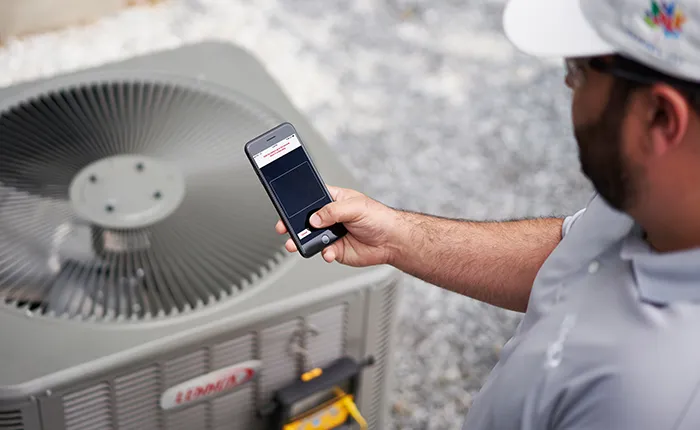
Read our HVAC guides today:


